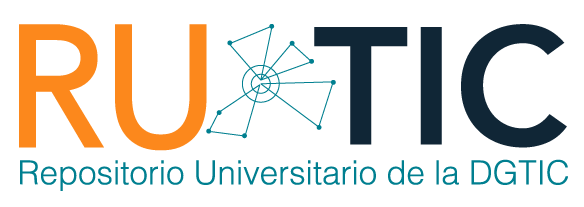| dc.coverage.spatial | MX | |
| dc.date.accessioned | 2018-06-28T05:19:18Z | |
| dc.date.available | 2018-06-28T05:19:18Z | |
| dc.date.issued | 2015-05-01 | |
| dc.identifier.uri | https://ru.tic.unam.mx/handle/123456789/2319 | |
| dc.description | Tema del mes | |
| dc.description.abstract | Las especies tradicionales subvaloradas o subutilizadas (ETSS) forman parte del patrimonio bio–cultural. Conservación, aprovechamiento, desarrollo y protección de las ETSS se vinculan y dependen, estrechamente, del uso, generación y extensión del conocimiento tradicional (CT). En el tránsito hacia la sociedad del conocimiento es necesario situar y comprender el papel que juega el CT junto con otros tipos de conocimiento. En este artículo se plantea que el reconocimiento y valoración del CT es imprescindible para que las sociedades de conocimientos en América Latina se constituyan como plurales. En particular, se requiere comprender el papel del CT en la innovación y estipular los requisitos para la adecuada protección de sus derechos de propiedad intelectual, no sólo desde el punto de vista cultural, sino también desde las perspectivas económica y jurídica. Las políticas públicas para la protección del CT deben diseñarse mediante un enfoque que incorpore dichos puntos de vista. | es_MX |
| dc.description.abstract | The neglected and underutilized species (NUS) are part of the bio-cultural patrimony. Conservation, utilization, development and protection of the NUS are linked and depend, tightly, of the use, generation and extension of the traditional knowledge (TK). In the transit to the knowledge society is necessary to situate and to understand the role that plays the TK in joint with other types of knowledge. This article sets that the acknowledgment and the valoration of the TK is indispensable for that the Latin American societies of knowledge are constituted to themself up as plural societies of knowledge. In particular it require understand the role of the TK in the innovation process and to stipulate the requirements for his adequate protection of its intellectual property rights, not only from the cultural point of view, but also from the economic and juridical perspectives. The public policies for the protection of the TK must be designed by an approach that integrates the mentioned points of views. | en |
| dc.format | html | |
| dc.format | application/pdf | |
| dc.format.extent | 2.9 MB | |
| dc.format.extent | 710 KB | |
| dc.language | spa | |
| dc.publisher | Universidad Nacional Autónoma de México. Dirección General de Cómputo y de Tecnologías de Información y Comunicación. Revista Digital Universitaria | |
| dc.relation.isformatof | http://www.revista.unam.mx/vol.16/num5/art38/art38.pdf | |
| dc.relation.ispartof | http://www.revista.unam.mx/index_may15.html | |
| dc.rights | openAccess | |
| dc.source | Revista Digital Universitaria (1607 - 6079). Vol. 16, No. 5 (2015) | |
| dc.subject | Pueblos indígenas -- Condición jurídica, leyes, etc. | |
| dc.title | A qué se enfrenta el conocimiento tradicional cuando se trata de protegerlo | es_MX |
| dc.title.alternative | What traditional knowledge is facing when it tries to protect it | en |
| dc.type | article | en |
| dc.subject.keywords | Especies subvaloradas, Especies subutilizadas, Especies tradicionales, Conocimiento tradicional, Derechos de propiedad intelectual, Proteccion social, Traditional Knowledge, Intellectual Property Rights, Social Protection | |
| dc.identifier.url | http://www.revista.unam.mx/vol.16/num5/art38/ | |
| dc.creator | LEON ROGELIO OLIVE MORETT | |
| dc.creator | MARTIN CARLOS PUCHET ANYUL | |
| dc.rights.url | http://creativecommons.org/licenses/by-nc-sa/4.0 |
Files in this item
This item appears in the following Collection(s)
COMPARTE
BÚSQUEDA
Escriba el texto a buscar en DSpace
CONTACTO
El Repositorio Universitario de la DGTIC se edita en la Dirección General de Cómputo y
de Tecnologías de Información y Comunicación (DGTIC), de la Universidad Nacional Autónoma de México (UNAM)
Circuito Exterior s/n, Ciudad Universitaria, Coyoacán, C.P. 04510, México, D.F
Tel: +(52) (55) 56228166 Email: rutic@unam.mx









 ¿Qué es un repositorio...?
¿Qué es un repositorio...? ¿Qué beneficios obtengo...?
¿Qué beneficios obtengo...? ¿Qué tipo de recursos...?
¿Qué tipo de recursos...? Preguntas frecuentes
Preguntas frecuentes